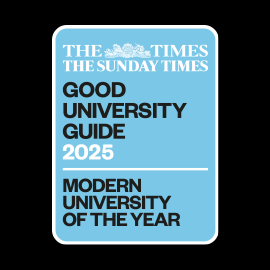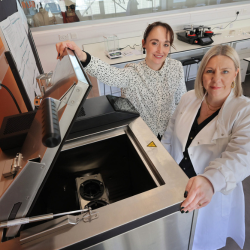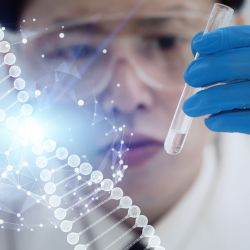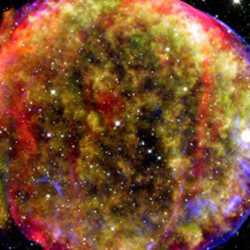-
Study
-
Undergraduate
- Search for a Course
- Undergraduate Open Day & Events
- Application Guides
- Northumbria University UCAS Exhibitions
- Foundation Years
- Undergraduate Fees & Funding
- School & College Outreach
- Continuing Professional Development
-
Postgraduate
- Postgraduate Study Degree
- Postgraduate Research Degrees
- Postgraduate Open Days and Events
- Postgraduate Fees & Funding
- Flexible Learning
- Thinking about a Masters?
- Continuing Professional Development
- Change Direction
-
Student Life
- The Hub - Student Blog
- Accommodation
- Life in Newcastle
- Support for Students
- Careers
- Information for Parents
- Students' Union
- Northumbria Sport
- Be Part of It
-
-
International
International
Northumbria’s global footprint touches every continent across the world, through our global partnerships across 17 institutions in 10 countries, to our 277,000 strong alumni community and 150 recruitment partners – we prepare our students for the challenges of tomorrow. Discover more about how to join Northumbria’s global family or our partnerships.
View our Global Footprint-
Applying to Northumbria
- European Union
- Our London Campus
- Northumbria Pathway
- International Events
- Entry Requirement and Education Country Agents
- Global Offices
-
Northumbria Language Centre
- Faculty Requirements
- Acceptable English Requirements
- Pre-sessional English Language and Study Skills
- Academic Language Skills Programmes (ALS)
-
International Fees, Funding & Scholarships
- International Undergraduate Fees
- International Undergraduate Funding
- International Masters Fees
- International Masters Funding
- International Postgraduate Research Fees
- International Postgraduate Research Funding
- International Money Matters
-
Life at Northumbria
- International student support
- Careers
-
International Mobility
- Current Northumbria Students
- Incoming Exchange Students
-
-
Business
Business
The world is changing faster than ever before. The future is there to be won by organisations who find ways to turn today's possibilities into tomorrows competitive edge. In a connected world, collaboration can be the key to success.
More on our Business Services -
Research
Research
Northumbria is a research-rich, business-focused, professional university with a global reputation for academic quality. We conduct ground-breaking research that is responsive to the science & technology, health & well being, economic and social and arts & cultural needs for the communities
Discover more about our Research -
About Us
-
About Northumbria
- Our Strategy
- Our Staff
- Place and Partnerships
- Student Profiles
- Alumni Profiles
- Leadership & Governance
- Academic Departments
- University Services
- History of Northumbria
- Contact us
- Online Shop
-
-
Alumni
Alumni
Northumbria University is renowned for the calibre of its business-ready graduates. Our alumni network has over 246,000 graduates based in 178 countries worldwide in a range of sectors, our alumni are making a real impact on the world.
Our Alumni - Work For Us
What will I learn on this module?
This module aims to equip physics students with the knowledge and transferable skills involved in computational methods and experimental techniques. Students will analyse and present experimental data, create computational models for appropriate physical systems and perform comparisons between theory and experiment. Quantitative, analytical and modelling training acquired in this module will support students’ professional and personal skills. This module offers the additional opportunity of research-orientated learning through a hands-on approach to analysing research-based data.
Experiments - Topics may include (note this is indicative rather than prescriptive):
1. Doppler Effect
2. Optical properties of semiconductors
3. Particle accumulation on a glass surface (c.f. sand particles on photovoltaic modules and link to Monte Carlo)
4. The heat engine
5. Hall Effect
6. Fundamentals properties of X-rays
7. Radioactive decay of ?, ? and ? particles
8. Microwave Diffraction
9. PID Control
10. Thermal Conductivity
11. Cosmic Ray Detection
12. Solar photovoltaic efficiency measurement.
Computation - Topics may include (note this is indicative rather than prescriptive):
1. Curve fitting (linear and non-linear), statistical analysis and data presentation
2. Matrices to the level of eigenvectors and eigenvalues
3. Discretisation and series analysis
4. Ordinary differential equations
5. Partial differential equations (links to stock market modelling, radioactivity, electrical and mechanical systems)
6. Thermal modelling
7. Probability distribution functions
How will I learn on this module?
The learning strategy of this module is based on a combination of lectures and laboratories. Lectures give a formal introduction to physical and mathematical aspects to be applied in laboratories. Laboratories provide hands-on training in experimental and computational Physics, but will often address topics with links beyond the discipline, thus strengthening the students’ transferable skills and employability.
Experimental work
Students will work in small groups in the laboratory, supported by tutors, developing hands-on experimental training through execution of lab-scripts. Data will be treated using statistical error analysis and data fitting techniques to compare with theoretical models underpinned by fundamental physics.
Computational work
An appropriate computational software such as MATLAB will be introduced to a level including matrices, expressions, indexing, linear and non-linear functions, data analysis and presentation, flow control, programs and functions. Computational labs focused on data analysis will use data from research sources.
The computational aspect of this module offers several technology-enhanced learning opportunities for students, including computational programming and scripting, data visualization and reporting.
This module is assessed by a laboratory-based assignment worth 50% and a computer-based assignment also worth 50%. The lab-based assignment will provide an opportunity for student’s to demonstrate knowledge of particular aspects of experimental physics. The computer-based assignment will cover the modelling aspects of the module and will assess the students’ problem solving abilities in creating an appropriate computational program to address a physics-based problem.
Laboratory sessions will be used to gain key formative feedback during suitable experiments, either verbally or through a lab-book.
Independent study is supported by further technology-enhanced resources provided via the e-learning portal, including lecture notes, e-hand outs, sample problems and past-paper questions.
How will I be supported academically on this module?
Lectures and labs will be the main point of academic contact, offering the student with a formal teaching environment for core learning. Labs will provide students with opportunities for critical enquiry and exchanges.
Outside formal scheduled teaching, students will be able to contact the module team (module tutor, year tutor, programme leader) either via email or the open door policy operated throughout the programme.
Further academic support will be provided through technology-enhanced resources via the e-learning portal. Students will have the opportunity to give their feedback formally through periodic staff-student committees and directly to the module tutor at the end of the semester.
What will I be expected to read on this module?
All modules at Northumbria include a range of reading materials that students are expected to engage with. Online reading lists (provided after enrolment) give you access to your reading material for your modules. The Library works in partnership with your module tutors to ensure you have access to the material that you need.
What will I be expected to achieve?
Knowledge & Understanding:
• Apply Physics and Mathematics concepts to formulate and tackle experimental and computational problems.
Intellectual / Professional skills & abilities:
• Plan and implement experimental investigations using standard and specialist laboratory equipment
• Develop and implement computing algorithms based on analytical and physical models
Personal Values Attributes (Global / Cultural awareness, Ethics, Curiosity) (PVA):
• Perform critical comparisons of experimental data with theory and derive suitable conclusions
• Analyse, discuss and report experimental and computational results in a professional manner using appropriate software?
How will I be assessed?
SUMMATIVE
1. Lab Assignment (50%) – KU1, ISA1, PVA1, PVA2
2. Computational Assignment (50%) – KU1, ISA2, PVA1, PVA2
FORMATIVE
1. Lab-book KU1, ISA1, ISA2
Feedback will take several forms including: individual verbal / written comments on lab work delivered in class or via blackboard; verbal feedback on the seminar work; written feedback on the report based on the experimental laboratories and on the assignment.
Pre-requisite(s)
N/A
Co-requisite(s)
N/A
Module abstract
Combining theory, computation and experiment for problem-solving is a key transferable skill in Physics. In this module you will tackle topical problems in Physics via a hand-on approach based on experiments, their analysis and the development of mathematical and computational models to treat and understand data. The content of the module is often informed by research data and research ideas, helping your develop your scientific curiosity and acumen. Via specialist Lab and IT facilities, the module offers a sandbox to develop your experimental and computational skills enhanced by technology. Building on formative assessment via lab and log-books, you will prepare and submit two components of assessment consisting of a 10-page lab report and a computational script. On completion of this module, you will have strengthened your ability to formulate, experimentally-test, analyse and rationalise Physics-related problems, increasing your skills base and appeal as a Physicist either in the academic or industrial sectors.
Course info
UCAS Code F300
Credits 20
Level of Study Undergraduate
Mode of Study 3 years Full Time or 4 years with a placement (sandwich)/study abroad
Department Mathematics, Physics and Electrical Engineering
Location City Campus, Northumbria University
City Newcastle
Start September 2025
All information is accurate at the time of sharing.
Full time Courses are primarily delivered via on-campus face to face learning but could include elements of online learning. Most courses run as planned and as promoted on our website and via our marketing materials, but if there are any substantial changes (as determined by the Competition and Markets Authority) to a course or there is the potential that course may be withdrawn, we will notify all affected applicants as soon as possible with advice and guidance regarding their options. It is also important to be aware that optional modules listed on course pages may be subject to change depending on uptake numbers each year.
Contact time is subject to increase or decrease in line with possible restrictions imposed by the government or the University in the interest of maintaining the health and safety and wellbeing of students, staff, and visitors if this is deemed necessary in future.
Useful Links
Find out about our distinctive approach at
www.northumbria.ac.uk/exp
Admissions Terms and Conditions
northumbria.ac.uk/terms
Fees and Funding
northumbria.ac.uk/fees
Admissions Policy
northumbria.ac.uk/adpolicy
Admissions Complaints Policy
northumbria.ac.uk/complaints















